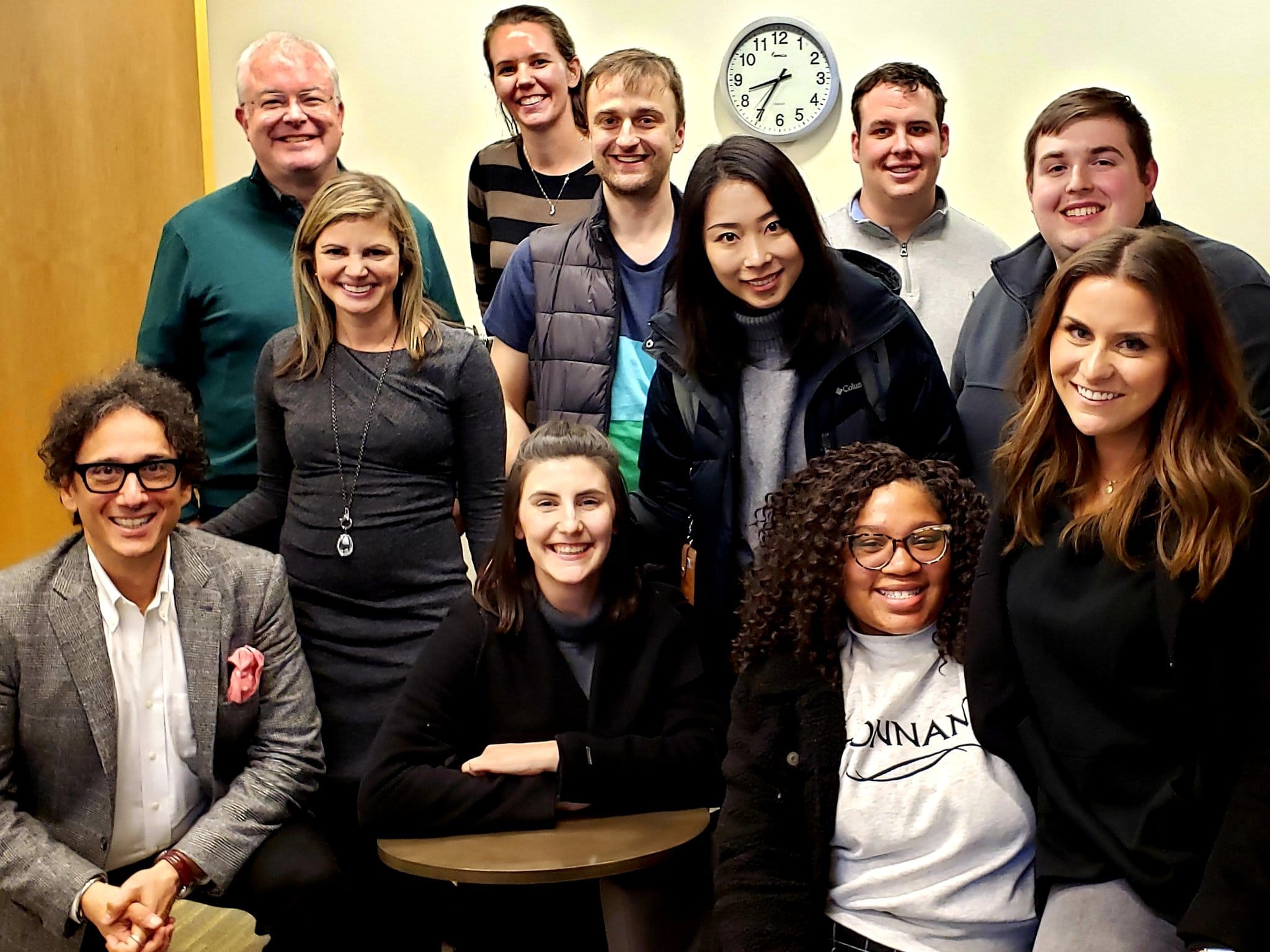December 23, 2019
How Hiring a Yogi With a JD Might Solve One of Big Law’s Biggest Problems

What if a yogi with a JD was a law firm’s highest-paid employee? What if a law firm committed to paying a law student’s loans once they passed the bar – if they committed to stay with the firm for two years?
These were just some of the ah-ha moments that Greentarget team members and students of DePaul University’s Public Relations & Advertising (PRAD) Grad class arrived at during a problem-solving workshop guided by innovation sherpa Howell Malham, founder and managing director ofGreenHouse::Innovation. Malham drove the conversation using Innovation Dynamics, his groundbreaking approach to true social innovation and problem-solving that involve large groups of actors: people, in other words.
Our goal? Find answers to the following question:
How can the legal industry attract and retain new talent in an age of clashing cultures?
That question, a critical one for many Greentarget clients, centers on how old-guard attorneys might be more comfortable with long work hours, whereas younger attorneys yearn for wellness programs, robust cultures, professional development opportunities and work-life balance.
The workshop could have taken a lot of different paths, but Malham kept us on track and used his Innovation Dynamics playbook – designed to seek out unseen social forces holding the status quo in place – to produce ideas to disrupt the legal industry. Malham’s playbook identifies six elements that form norms, unwritten rules that govern our behavior and interactions.
Over the course of two hours, we focused on one of those elements: actors, people with close relationships to the problem. Identifying law firm partners, clients, law schools and the students themselves, lateral recruits and families and spouses as just a few of the key players involved in recruiting and retaining legal talent, we discussed their motivations and asked questions such as:
What are the actors’ behaviors related to the problem? What do behaviors suggest about actors’ interests and motivations? What current behavior by a current actor could subvert the norm? What behavior by a new actor might subvert the norm?
The answers present clear challenges to the traditional law firm model.
The partner track is not necessarily attractive to all incoming attorneys, and compensation and benefits are not necessarily enough to keep them around. Younger people are waiting longer to settle down and have families, leaving them flexible to explore options at all stages of their careers. They also enter the job market hungry for meaningful work and purpose. Putting in long hours as an associate to earn their spot on the partner track can clash with those motivations.
Figuring the law firm model is still valuable to many law firm employees and partners, Greentarget and the PRAD Grad students brainstormed the following ways to better align that model with younger lawyers’ motivations:
- Ex-Lawyers on Staff: Hire and engage employees who have earned their JDs and pursued alternative career paths, such as yoga instructors, journalists and therapists, to tackle recruitment challenges. These individuals understand the pressures of working at law firms and can provide fresh perspectives on the culture and wellness elements firms are trying to employ.
- “Scott’s Tots”: Inspired by “The Office” episode when Michael Scott (Steve Carell) promises to pay an entire third-grade class’ college tuition after they graduate high school, a firm could sponsor a class at a target law school for recruitment and offer to pay their law school loans if they pass the bar. This level of financial support when so many students are drowning in debt promotes a sense of loyalty from employees.
- Pro Bono Focus: Once a year, host a marathon where the firm’s lawyers focus solely on pro bono matters and work in shifts for one straight week, 24 hours a day. This level of commitment would not only drive good publicity but also engage all employees in purposeful work outside of their standard client work.
DePaul’s PRAD Grad students participated as part of a course called Chicago Corporations & Their Agencies, which focuses on working relationships between agencies and clients. The Greentarget team had a great time – and it sounds like the students did too.
“The class couldn’t have gone better,” said Ron Culp, instructor and professional director of PRAD. “Seldom do students linger afterwards, especially when the evening runs past 8 o’clock. No complaints last night.”






